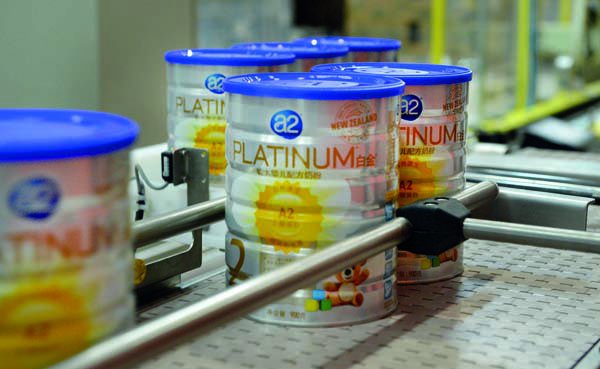An a2 Milk spokesman said the company was “actively engaged in defining and protecting its rights”. It also was investing in scientific research to develop further understanding of the beneficial qualities of A2 milk.
The patent and IP challenge was the subject of a detailed analysis by First New Zealand Capital in May, when a2 Milk’s share price dropped to about $1.60 after peaking at $2.27 late in December.
The challenge appeared to be coming from small-scale operators, a note to investment clients said.
Kar Yue Yeo, First NZ Capital’s managing director of equity research, was ambivalent about the implications.
On the one hand, the breadth and depth of a2 Milk’s registered patents “may be about to be put through significant tests,” he said.
On the other, the challenges could be regarded as an endorsement of the A2-type milk’s potential benefits for some consumers.
The a2 Milk Company’s intellectual property portfolio comprises 14 families of patents filed or registered across international markets. The last of them is set to expire in 2035.
The patents extend rights across the supply chain, from animal and milk testing methodologies through to the beneficial effects of A1 protein-free milk on digestive and metabolic functions.
First NZ Capital identified four companies that had made statements relating to the potential benefits of A2-type milk on their websites or in media releases without mentioning “the a2 Milk Company” or the “a2” brand.
• Snowville Creamery – a small dairy processor in Ohio whose products are sold under the Snowville brand through six wholesale distributors in Ohio, Kentucky and Indiana. Snowville sells grass-grazed-only white milk, chocolate milk, cream and yoghurt. It claims its “white milks are now exclusively produced from cows that have been tested and verified to have only A2 genetics”, although Yeo said its packaging didn’t appear to have any references to A2-type milk.
• Origin Milk – a small dairy processor in Cleveland, Ohio, whose products are sold under the Origin brand through four retailer chains in Ohio, Pennsylvania, Illinois and other states. Origin sells dairy-based milk, creamery and butter as well as goats’ milk. It has references to A2 on its packaging.
• Hidden Acre Farms – a small Ohio dairy and beef supplier, it has stated its dairy milk is sourced from herds of Jersey and Guernsey cows that produce milk with A2-type protein. This is “super helpful for people who have discomfort when digesting regular cows’ milk and may also help with symptoms associated with ADHD and autism”. Yeo was uncertain if Hidden Acre had any consumer product offering.
• VecoZuivel – it regards itself as a leading dairy processor company in the Netherlands and sells organic and conventional dairy-based milk, yoghurt and yoghurt drinks and butter, as well as goats’ milk and a small range of Dutch desserts. VecoZuivel produces dairy for major Dutch retailers and in 2012 started exporting dairy products to China and southeast Asia. The First NZ Capital note to clients cited a magazine report that VecoZuivel hoped to make A2-type milk products available to its Dutch supermarket customers this northern summer and was considering exporting this product to China.
None of the companies had contacted a2 Milk about their product launches. An a2 Milk spokesman said its patents, coupled with a suite of brands and trademarks, continued to provide the company with exclusive rights to the production and sale of the a2 Milk brand of A1-protein-free milk for a range of beneficial uses.
The company recognised that as the A1-protein-free concept became more widely understood, other parties would try to benefit from it, he said.
He agreed with First NZ Capital this could be regarded as an endorsement of the concept.
But the a2 Milk Company’s reputation and its IP protection meant rival companies would not be entitled to infringe on the company’s rights, “and will face clear and wide-ranging restrictions on market initiatives and communication”.
In mid-June, a2 Milk updated its forecasts and assured investors it continued to perform strongly. Based on a review of its unaudited financial results to May 31, continuation of recent trading performance and no material change in market conditions in June, it forecast group revenue in the $350-$360 million range and group operating earnings (before interest, taxes, depreciation and amortisation) of $52-$54m for the 2016 financial year.










